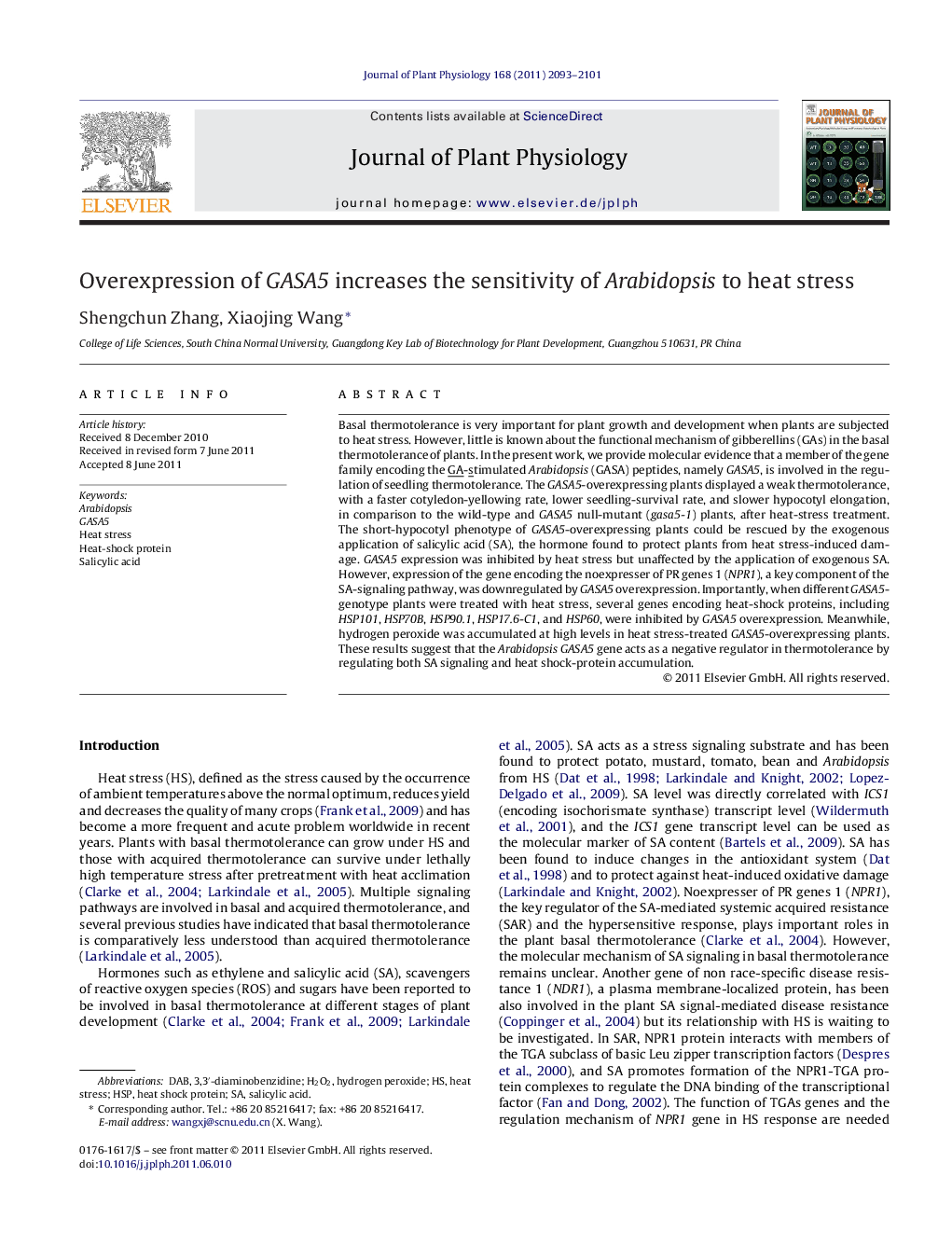| Article ID | Journal | Published Year | Pages | File Type |
|---|---|---|---|---|
| 2056679 | Journal of Plant Physiology | 2011 | 9 Pages |
Basal thermotolerance is very important for plant growth and development when plants are subjected to heat stress. However, little is known about the functional mechanism of gibberellins (GAs) in the basal thermotolerance of plants. In the present work, we provide molecular evidence that a member of the gene family encoding the GA-stimulated Arabidopsis (GASA) peptides, namely GASA5, is involved in the regulation of seedling thermotolerance. The GASA5-overexpressing plants displayed a weak thermotolerance, with a faster cotyledon-yellowing rate, lower seedling-survival rate, and slower hypocotyl elongation, in comparison to the wild-type and GASA5 null-mutant (gasa5-1) plants, after heat-stress treatment. The short-hypocotyl phenotype of GASA5-overexpressing plants could be rescued by the exogenous application of salicylic acid (SA), the hormone found to protect plants from heat stress-induced damage. GASA5 expression was inhibited by heat stress but unaffected by the application of exogenous SA. However, expression of the gene encoding the noexpresser of PR genes 1 (NPR1), a key component of the SA-signaling pathway, was downregulated by GASA5 overexpression. Importantly, when different GASA5-genotype plants were treated with heat stress, several genes encoding heat-shock proteins, including HSP101, HSP70B, HSP90.1, HSP17.6-C1, and HSP60, were inhibited by GASA5 overexpression. Meanwhile, hydrogen peroxide was accumulated at high levels in heat stress-treated GASA5-overexpressing plants. These results suggest that the Arabidopsis GASA5 gene acts as a negative regulator in thermotolerance by regulating both SA signaling and heat shock-protein accumulation.
